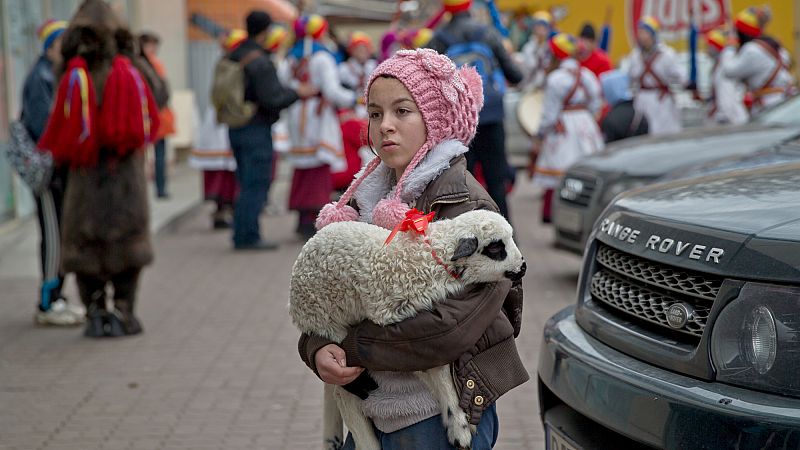
In Romania, live lamb markets have opened in many communities and sheep farmers have strict rules to follow.
Local authorities advise buying only from authorised sellers who offer a veterinarian's guarantee of health.
"They run the risk that the meat is not lamb, could be a different type of animal, or risk that the meat may induce pathological conditions in those who buy it," says Florin Capățână, Director General of the National Sanitary and Veterinary Authority for Food Safety.
Romania has a centuries-old rural tradition of slaughtering pigs and lambs at main Christian holidays without stunning.
Last week, a slaughterhouse for lambs and goats opened at a public market in the southwest Romanian city of Craiova. Farmers come with live animals and buyers can choose the one they want.
"We got lamb meat yesterday, and today we are coming for kid (goat meat). We prefer it here because it's...we see it. It's natural," one buyer said.
For other buyers, it's more about the price. "I'm sure of what I'm getting. I got a piece with so much fat at the Central Market," one buyer said. While another explained that many prefer to buy mutton chops from such a market, especially as the price is cheaper.
"A kilogramme costs between 20 and 23 lei, around €4 to €4.60, whereas in stores the price is double," he said.
Although in recent years the number of slaughterhouses has declined, dozens still operate across Romania.
Adrian Dinu, a Craiova public market representative, said they have licensed butchers who do the slaughtering.
"We have a captive bolter, and we have a knife sterilisation station. The lamb is bought; it is chosen by the buyer, and then it is taken to the slaughtering point, where the authorised butchers take it, and after slaughter, it is seen by a veterinarian who applies the health stamp," he explained.
EU regulation on the slaughtering of animals
Romania came in for fierce criticism for the slaughtering of animals when it joined the European Union in 2007. Since joining the EU, the country is subject to strict rules that it must follow.
"The European Union has very clear legislation when it comes to the slaughter of animals and it describes in great detail what is allowed and what is not allowed for each species," says Gabriel Păun, president of Animals International NGO.
"Whether it's a lamb or any other species of farm animal, no one is allowed to kill the animal without stunning."
One of the EU rules also requires a veterinarian to be present on the farm before slaughter.
In the meantime, this Easter regulators in Romania have repeated their warning against the purchase of lambs directly from sheep farms without sanitary certification.
The meat can lead to parasitic diseases, they say.
Last year, the eastern European nation recorded 67 outbreaks of sheep and goat plague in the summer, with 280,000 animals dying as a result.







